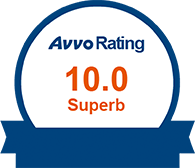
Miami Money Laundering Lawyer
Money laundering generally refers to the process of taking money that was originally obtained from criminal activities and converting it to a legitimate source to conceal the illegal origin of the funds. For example, an individual who has obtained a substantial amount of cash selling drugs may decide to purchase a rental property to provide for a legitimate alternate source of income. The underlying purchase of the home would be classified as money laundering under federal law.
Money laundering crimes have been historically linked to organized crime organizations such as the mob or drug cartels. However, in practice, the federal government prosecutes all money laundering offenses from the large organizations down to minor offenders.
Money laundering is a serious criminal offense punishable by a maximum sentence of 10-20 years depending on the facts of the case. In addition, if you are not a U.S. citizen, money laundering is an aggravated felony for immigration purposes if the amount of the illegally derived funds exceeds $10,000.
Attorney for Money Laundering in Miami, FL
If you were arrested for a white collar crime like money laundering, in Miami, FL, it is important you contact a law firm with experience in federal criminal law. As a former prosecutor, our attorney E.J. Hubbs has the experience necessary to help you attempt to achieve the best outcome on your case. In addition, E.J. Hubbs is board certified in criminal trial law, an honor held by less than 1% of the attorneys in the State of Florida.
Hubbs Law handles all types of white collar crimes, including money laundering, in Miami, FL and throughout Miami-Dade County, including Hialeah, Miami Beach, South Miami, Pinecrest, Kendall, Palmetto Bay, Cutler Bay, Homestead, Dadeland, and anywhere else in the area.
Elements of Money Laundering
Money laundering is most commonly charged under two separate statutes. Under 18 U.S.C. 1957, it is unlawful for an individual to knowingly engage in a monetary transaction in criminally derived property of a value greater than $10,000 which is derived from specified unlawful activity. This generally involves the example mentioned above where an individual uses income derived from illegal activity such as selling drugs or fraud and then engages in a monetary transaction with the money.
Under 18 U.S.C. 1956, it is unlawful for an individual to knowingly conduct a financial transaction with money that the individual knew was involved in some kind of unlawful activity when the transaction was designed to avoid a transaction reporting requirement under Federal law. This generally involves an individual who is depositing money in a bank account in amounts under $10,000 for the purpose of avoiding reporting the transaction to the IRS.
Under 18 U.S.C. 1957, the federal government is required to prove beyond a reasonable doubt the five following elements:
- The Defendant knowingly engaged or attempted to engage in a monetary transaction;
- The Defendant knew the transaction involved property or funds that were the proceeds of some criminal activity;
- The property had a value of more than $10,000;
- The property was in fact proceeds of the unlawful activity; and
- The transaction took place in the United States or the outside the United States if the Defendant was a United States person.
It should be noted that, under this statute, it doesn’t matter whether the Defendant knows of the precise nature of the crime or that the property came from the specific unlawful activity. The government is only required to prove that the Defendant knew that the property came from some type of criminal activity.
Under 18 U.S.C. 1956(a)(1)(B)(ii), the federal government is required to prove beyond a reasonable doubt the four following elements to obtain a conviction under this section:
- The Defendant knowingly conducted or attempted to conduct a financial transaction;
- The Defendant knew that the money or property involved in the transaction were proceeds of some kind of unlawful activity;
- Money or property did come from an unlawful activity; and
- The Defendant participated in the transaction to avoid a transaction-reporting requirement under state or Federal law.
A transaction reporting requirement means a legal requirement that a domestic financial institution must report any transaction involving a payment, receipt, or transfer of United States coins or currency totaling more than $10,000.
Penalties for Money Laundering
The penalties for money laundering depend on the specific statute related to the charge in the case. Here are the different possibilities:
- Money Laundering under 18 U.S.C. 1957 – Maximum sentence of 10 years + $250,000 fine or twice the amount of the criminally derived property
- Money Laundering – Concealing Proceeds of Specified Unlawful Activity or Avoiding Transaction Reporting Requirements under 18 U.S.C. 1956(a)(1)(B)(i) or (ii) - Maximum sentence of 20 years + $500,000 fine or twice the amount of the criminally derived property
- Money Laundering – Promoting Unlawful Activity under 18 U.S.C. 1956(a)(1)(A)(i) - Maximum sentence of 20 years + $500,000 fine or twice the amount of the criminally derived property
- Money Laundering – International Transportation of Monetary Instruments under 18 U.S.C. 1956(a)(2)(A) - Maximum sentence of 20 years + $500,000 fine or twice the amount of the criminally derived property
- Money Laundering – Sting under 18 U.S.C. 1956(h) - Maximum sentence of 20 years + $250,000 fine
- Money Laundering – Conspiracy under 18 U.S.C. 1956(a)(1)(A)(i) – Same maximum sentence and fine as underlying charge
As professional Miami criminal defense attorneys, we take every case personally give every client the deliberate care it deserves. Our clients become part of our family and we fight relentlessly for their rights. Read more about us to find out how we can help you.



Client Testimonials
-
"Erica es una buena abogada the imigracion!! Me ayudo con mi caso y en menos de dos anos pude areglar mis papeles.. Sin su anuda no se que fuera de mi familia. La recomiendo si estan buscando ayuda seria!"
-
I do not have enough praise for Erika and Eric.
Zoe Gorospe -
Happy Out of State Client
Michele D










